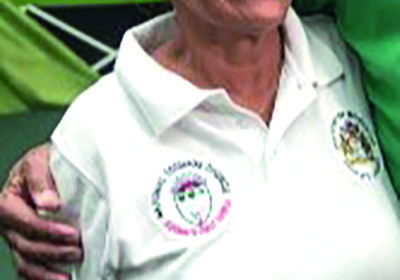
The year 2020 is deemed the start of a “transformative era”, and the leaders of some Indigenous communities are expectant that this decade will include critical improvements in areas such as health, among others.
Past surveys conducted by the United Nations Children’s Emergency Fund (UNICEF) have found that lack of modern-life facilities is the main hindrance to quality health care in Indigenous populations but village leaders are of the view that 2020 is the year to end health woes.
Guyana Times International spoke to the Toshaos of Bumbery Hill and Four Miles, located in Region One (Barima-Waini) where they highlighted health care challenges and needs within the respective communities.
The country’s oldest village chief of Bumbery Hill, Elizabeth Romascindo, explained that the tight-knit community is in dire need of a health post. This, according to her, will benefit senior citizens in particular, who would often experience financial difficulties as they would have to travel to the Hosororo community to access health service.
“We need a health hut because people are getting old. We have one at Hosororo but persons sometimes do not have money to travel. So we need one, that even if a person doesn’t have money they can visit the one within the community,” Romascindo noted.
The need for trained health practitioners was also highlighted, as Romascindo added that surrounding villages are in to benefit.
“We would also need trained health workers…We have persons in other surrounding communities that can come here because if you don’t have transportation money you would think twice to walk. So if we have a health hut it would be better for us.”
Similar views were expressed by the leader of Four Miles, Lloyd Adolphus, who endorsed that it is an appropriate time to end health issues, pointing to drug shortages. He recounted a recent shortage of malaria treatment, a disease that is prevalent within the area.
“We need a building but one with drugs inside…We have had drugs shortages for malaria, one time we did not have tablets at all, we have to wait for the treatment come from Mabaruma and malaria is very dominant here,” Adolphus posited.
The leader further placed calls for a trained medical team, and an improved health facility to treat patients and store drugs.
“In terms of health-wise, we are in need of someone whom is properly trained and a better building for our health post, patients and drugs to be housed in,” he added.
Drug shortage
Meanwhile, Chairman of Region One (Barima-Waini) Brentol Ashley said that the shortages of drugs, particularly those used for the treatment of malaria and hypotension, is continuing to put a strain on health services in the region.
Ashley, during an interview with this publication, added that drug shortage is plaguing several communities.
Ashley further stated that there are some instances where drugs and medical supplies are expired.
The Chairman added that even though monies were budgeted for the communities’ medical supplies, there has not been any significant improvement in the provision of drugs and medical supplies over the years.
Moreover, the Chairman lamented the Regional Executive Officer’s decision to transport the drugs via ferry rather than by an aircraft.
Last month, Public Health Minister, Volda Lawrence was heavily criticised by former Health Minister, Dr Leslie Ramsammy for the rapid decline of the health sector since 2015.



